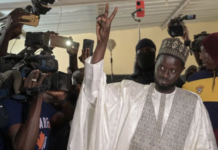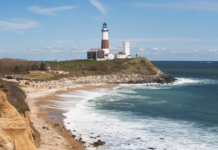President Joe Biden on Thursday urged state and local governments to use financial incentives, in the form of $100 payments, to convince their residents to receive coronavirus vaccines.
In May, the Treasury Department authorized governments to use funds derived from the American Rescue Plan in order to create such incentives. But now, the administration is making a direct plea to local governments to follow through.
“Treasury stands ready to give technical assistance to state and local governments so that they may use the funds effectively to support increased vaccination in their communities, and Treasury will partner with the Department of Health and Human Services throughout this effort,” a statement from the Treasury Department said.
The incentives would only apply to those who haven’t yet received the vaccine — it doesn’t appear that those who are already vaccinated would be paid retroactively. Biden acknowledged that paying people now and not being able to pay vaccinated people retroactively “might sound unfair.” However, he said, the payments remain a key tool in pushing for more vaccinations.
“Here’s the deal: if incentives help us beat this virus, I believe we should use them. We all benefit if we can get more people vaccinated,” Biden said.
As COVID-19 case numbers continue to rise due to the ending of mask rules and the surge of the more contagious Delta variant of the virus, getting more people vaccinated is an important goal. Doing so could reduce the number of hospitalizations and deaths, as current data suggest that 97 percent of those who go to the hospital with coronavirus symptoms are unvaccinated.
But would a financial incentive actually work? There’s some evidence that it can. Polling in late April and early May by Morning Consult asked unvaccinated Americans whether being paid to get their shots would encourage them to do so. The poll asked whether respondents would be more likely to get vaccinated if they were paid $1,000. Fifty-seven percent of respondents said a $1,000 payment would motivate them to get inoculated.
Even smaller financial incentives would work to some degree, the poll found. When asked if a $50 incentive would do, 43 percent of respondents said that amount would be enough.
More recent polling, however, shows that the financial incentive Biden is proposing may not result in huge changes. When an Economist/YouGov poll in late July asked if a $100 payment would change people’s minds, only 8 percent of unvaccinated respondents said that would convince them to get vaccinated.
Still, that incentive proved more appealing than a number of other ideas the poll offered. Only 6 percent of unvaccinated respondents said they’d be convinced by a recommendation from their doctor to get vaccinated. Only 5 percent respondents would be convinced to get vaccinated if someone close to them contracted COVID. And only 2 percent would be convinced by a plea for vaccination from former President Donald Trump.
Although vaccines have drastically reduced the number of coronavirus-related deaths, fatalities from the virus have continued. Since April 30, more than 35,000 Americans have died from COVID-19. Experts say that more than 99 percent of those who have died in recent weeks were unvaccinated individuals.








